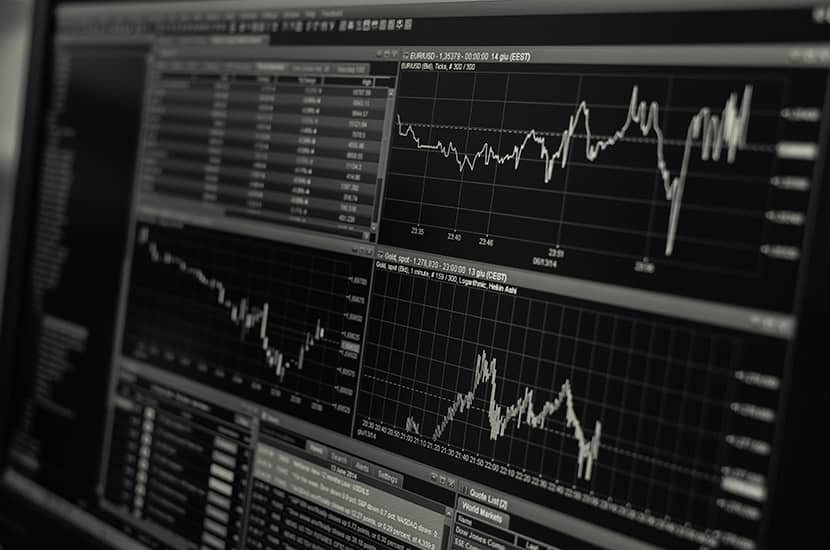Since the onset of the COVID pandemic, equity investing has been a wild ride. 2020 featured the fastest-ever bear market (a fundamentally driven downturn surpassing approximately -20%) and a similarly swift recovery. As the year went on, investors clamored for big-name initial public offerings (IPOs) and IPOs’ in-vogue cousins, special purpose acquisition companies (SPACs). Top that all off with early 2021’s meme-stock mania and it may seem like the equity market is more volatile now than ever. However, a look at history suggests otherwise. Fisher Investments UK believes long-term investors are better off taking a long-term perspective on volatility and refraining from projecting recent market volatility into the future.
Equity market volatility is normal
Over the long history of equity markets, large spikes in volatility have come and gone, but volatility itself is always present because it is an inherent and unpredictable aspect of markets. One commonly used tool to measure volatility is the historical standard deviation of market returns, which shows the degree to which returns have deviated from their averages over a given period. Exhibit 1 shows the average annual standard deviation of monthly market returns (shown in US dollars) from 1926 to 2020. Over that time, some years experienced above average volatility, while others experienced less. While volatility varies from year to year, it is an ever-present aspect of investing in equities.
Exhibit 1: Average Annual Standard Deviation of Monthly Market Returns, 1926 – 2020

Further, Fisher Investments UK doesn’t believe a volatile period has ever ushered in permanently higher volatility, and we don’t believe 2020 necessarily will either. Anyone who rode through the lockdown-driven plunge and subsequent recovery won’t be surprised to learn 2020’s standard deviation was 25.3%—greatly surpassing the long-term annual average of 12.4%.[i] However, 2020’s volatility wasn’t unprecedented. Three years—1931, 1932 and 1933—all featured higher standard deviations than 2020.[ii] Even those incredibly volatile years during the Great Depression didn’t usher in a permanent new age of higher volatility. Actually, average annual volatility in the decade following 1933 was relatively middling—just 9.93%.[iii] Given this historical context and our forward-looking market views, Fisher Investments UK doesn’t believe 2020’s above-average volatility will necessarily lead to more volatility. Investors should avoid projecting 2020’s big market swings into the future. Volatility is unpredictable and can happen for no reason or any reason at all. It’s an inherent part of equity markets and the price investors must pay for equity-like growth.
The upside of equity market volatility
People usually associate volatility with negative investment returns, but volatility can be to the upside as well. For example, 2008 featured extremely negative returns and a standard deviation of 23.9%, while 2009 featured extremely positive returns and a standard deviation of 22.5%—just a hair under 2008’s![iv] That upside volatility is a key reason equities have been able to deliver a relatively high average annualized return of 8.9% over the long-term.[v]
Next time there’s a big daily market drop, you may need to resist the desire to react and sell out of equities. Recent volatility can’t tell you anything about what will happen, and it doesn’t mean equity markets are more volatile than ever before. Though you may have experienced extreme negative volatility, that is just one side of the coin. Positive volatility is the other, and it is what many equity investors require in order to achieve their long-term investing goals.
Interested in other topics by Fisher Investments UK? Get our ongoing insights, starting with a copy of Markets Commentary.
Follow the latest market news and updates from Fisher Investments UK:
Facebook: https://facebook.com/FisherInvestmentsUK/
Twitter: https://twitter.com/FisherInvestUK
LinkedIn: https://www.linkedin.com/company/fisher-investments-uk
Fisher Investments Europe Limited, trading as Fisher Investments UK, is authorised and regulated by the UK Financial Conduct Authority (FCA Number 191609) and is registered in England (Company Number 3850593). Fisher Investments Europe Limited has its registered office at: Level 18, One Canada Square, Canary Wharf, London, E14 5AX, United Kingdom.
Investment management services are provided by Fisher Investments UK’s parent company, Fisher Asset Management, LLC, trading as Fisher Investments, which is established in the US and regulated by the US Securities and Exchange Commission. Investing in financial markets involves the risk of loss and there is no guarantee that all or any capital invested will be repaid. Past performance neither guarantees nor reliably indicates future performance. The value of investments and the income from them will fluctuate with world financial markets and international currency exchange rates.
[i] Source: Global Financial Data (GFD), as of 06/15/2021. GFD World Index total return, monthly, from 12/31/1925 to 12/31/2020. The World Return Index is based upon GFD calculations of total returns before 1970. These are estimates by GFD to calculate the values of the World Index before 1970 and are not official values. GFD uses specified weightings to calculate total returns for the World Index through 1969 and official daily data post 1970. Values calculated using US dollars. The value of investments and the income from them will fluctuate with world financial markets and international currency exchange rates.
[ii] Ibid. Standard deviation of 28.3% in 1931, 32.6% in 1932 and 27.4% in 1933.
[iii] Ibid. Average annual standard deviation of 9.93% from 1934 to 1943.
[iv] Ibid.
[v] Ibid.






Comments